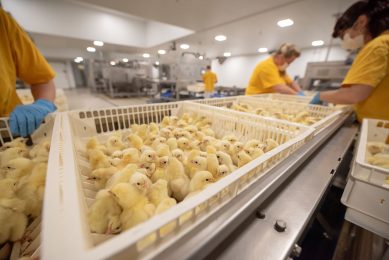Are chicken farms really terror threats?

It is being questioned whether chicken coops may be the next battleground in the war on terror?
The Department of Homeland Security has proposed regulations that would label propane gas a “chemical of interest” and require anybody with 7,500 pounds or more of the fuel to register with the agency. However, poultry growers are protesting.
At that amount, poultry farmers who use propane to heat chicken houses would have to fill out the forms.
“I could think of a lot easier, better targets for terrorists than chicken farms,” groused Richard Lobb, spokesman for the National Chicken Council. The U.S. Poultry & Egg Association and the National Turkey Federation have joined the protests.
Thousands affected
By industry counts, up to 40,000 farms could be affected by the security proposal. The government, however, argues that the registration rule is important to protect the country.
Maryland’s two senators, Democrats Barbara Mikulski and Ben Cardin, along with Sen. Tom Carper, D-Del., wrote to Department of Homeland Security Secretary Michael Chertoff asking that the rule be shelved.
“Given the serious threats that are currently facing our country and the limited resources of the Department of Homeland Security, please explain why this initiative is a good use of federal dollars,” the senators wrote earlier this month.
The agency’s right
Department of Homeland Security spokesman Russ Knocke said the agency is right to compile data on dangerous chemicals, even in rural areas, and said farmers would only need to spend “a couple hours” online to comply.
Bill Satterfield, who runs the Delaware-based Delmarva Poultry Industry trade group, said people are not at risk from propane tanks on chicken farms. “It’s ridiculous. Poultry farms are not near population centres. An exploding propane tank would do little harm to the chicken houses, much less any other buildings on the farm, much less anybody else,” Satterfield said.
Related links:













